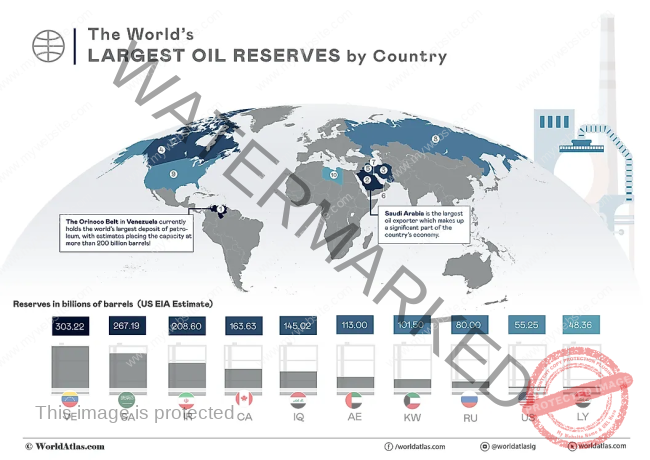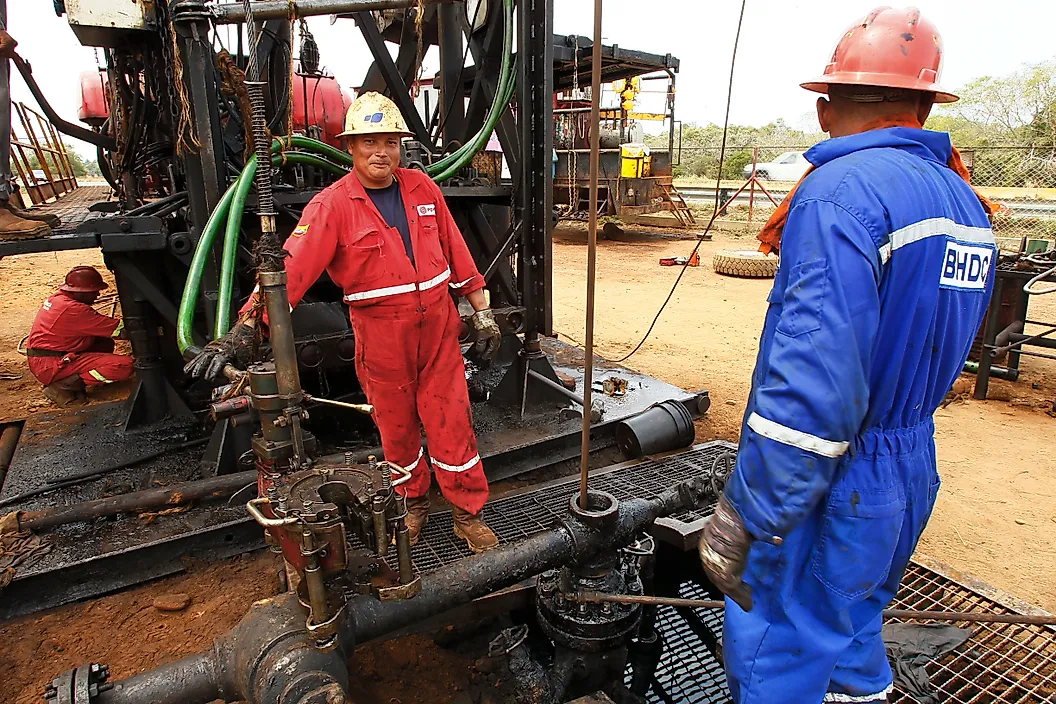Oil reserve is the amount of crude oil that can be technically recovered at a cost that is financially feasible. Over the years, the volume of oil
Oil reserve is the amount of crude oil that can be technically recovered at a cost that is financially feasible.
Over the years, the volume of oil reserves owned by different countries has solidified their presence as major players due to the importance of oil and gas in the global economy.
The Society of Petroleum Engineers define oil reserves as the amount of crude oil that can be technically recovered at a cost that is financially feasible using the current oil price.
10 countries with the largest oil reserves
According to a ranking by World Atlas, using 2024 data by the Organization of Petroleum Exporting Countries (OPEC), out of the 43 countries, the top 10 countries that boast of oil and gas production have been highlighted and they include:
| Rank | Country | Oil Reserves – OPEC |
|---|---|---|
| 1 | Venezuela | 303.22 Billion Barrels |
| 2 | Saudi Arabia | 267.19 Billion Barrels |
| 3 | Iran | 208.60 Billion Barrels |
| 4 | Canada | 163.63 Billion Barrels |
| 5 | Iraq | 145.02 Billion Barrels |
| 6 | United Arab Emirates | 113.00 Billion Barrels |
| 7 | Kuwait | 101.50 Billion Barrels |
| 8 | Russia | 80.00 Billion Barrels |
| 9 | United States | 55.25 Billion Barrels |
| 10 | Libya | 48.36 Billion Barrels |
1. Venezuela
Venezuela, with a population of around 33 million residents has the largest proven oil reserves in the world totalling 303 billion barrels and accounting for approximately 17% of global reserves.
2. Saudi Arabia
Saudi Arabia comes second behind Venezuela with a total of 267 billion barrels in its reserves. The country accounts for about 16.9% of the world’s petroleum reserves.
3. Iran
Iran came in third position with 208 billion barrels in its reserves. Iran, with a population of about 85.69 million people makes up about 24% of oil reserves in the Middle East and 12% in the world according to a report by the US Energy Information Administration.
4. Canada
Although not originally included in the OPEC report, Canada’s oil fields have been noted to have one of the largest oil and gas deposits although this oil is notoriously hard to access and even more difficult to process. Canada holds about 163 billion barrels in its reserves.
5. Iraq
Iraq has been long plagued with conflicts since the early 2000s and this has made oil production in the country difficult. The country is still a major playerin the industry as a founding OPEC member, and analysts have estimated the total oil reserves at anywhere between 112 and 300 billion barrels.
6. United Arab Emirates
The United Arab Emirates (UAE) can be described as one of the wealthiest Middle Eastern countries, a development which can be traced to its rich oil reserves. The UAE holds about 113 billion barrels in its reserves.
7. Kuwait
Kuwait holds about 6% of the world’s oil reserves including half of the reserves in the Neutral Zone that is shared with Saudi Arabia. The country is a long-standing OPEC member and holds 101 billion barrels in its reserves.
8. Russia
Russia’s oil reserves hold about 80 billion barrels and this made the country the main source of energy for many of Europe’s economies until the war with Ukraine started. According to World Atlas, Russia’s reserves are yet to be fully explored.
9. United States of America.
The US holds about 55 billion barrels in its oil reserves. Despite the low reserves, the US still produces the highest volume of oil currently at 12 million barrels per day.
10. Libya
As of 2021, Libya was the 7th largest crude oil producer in OPEC and the 3rd largest total petroleum liquids producer in Africa, after Nigeria and Algeria. Libya currently holds 48 billion barrels of oil accounting for 3% of the world’s proven oil reserves and 39% of Africa’s proven oil reserves.

